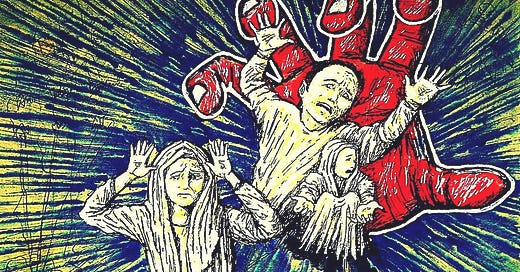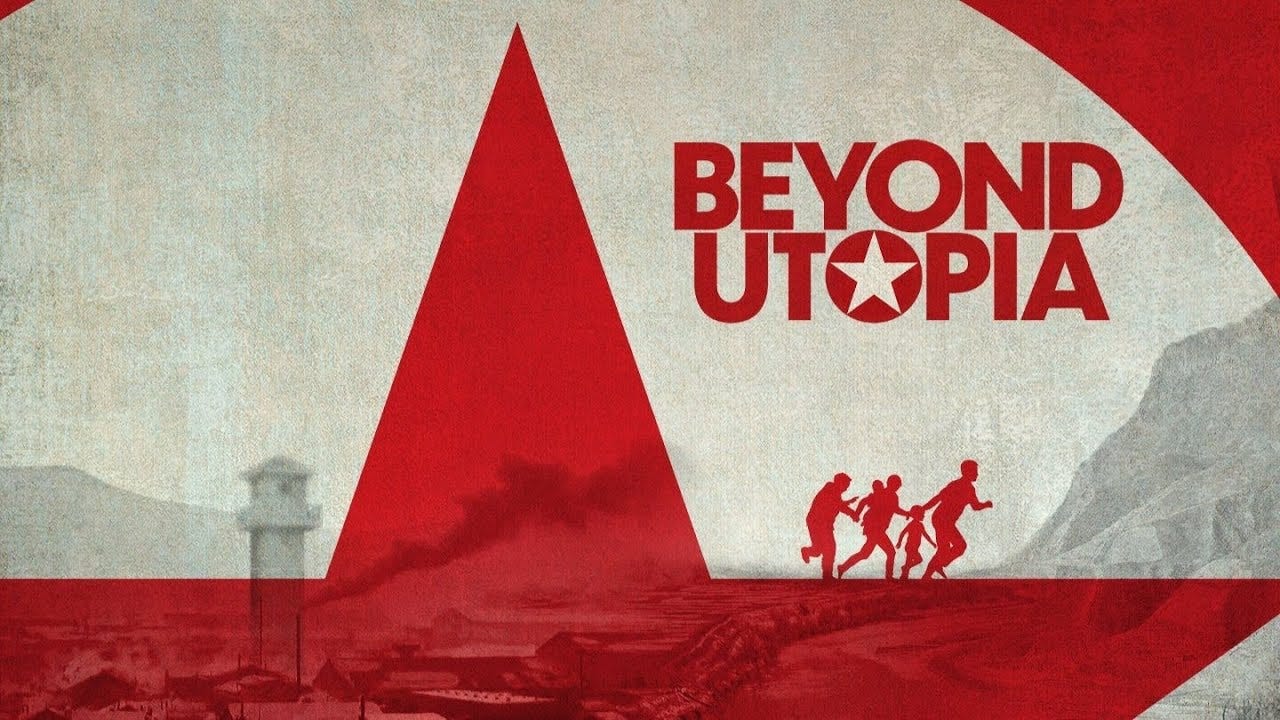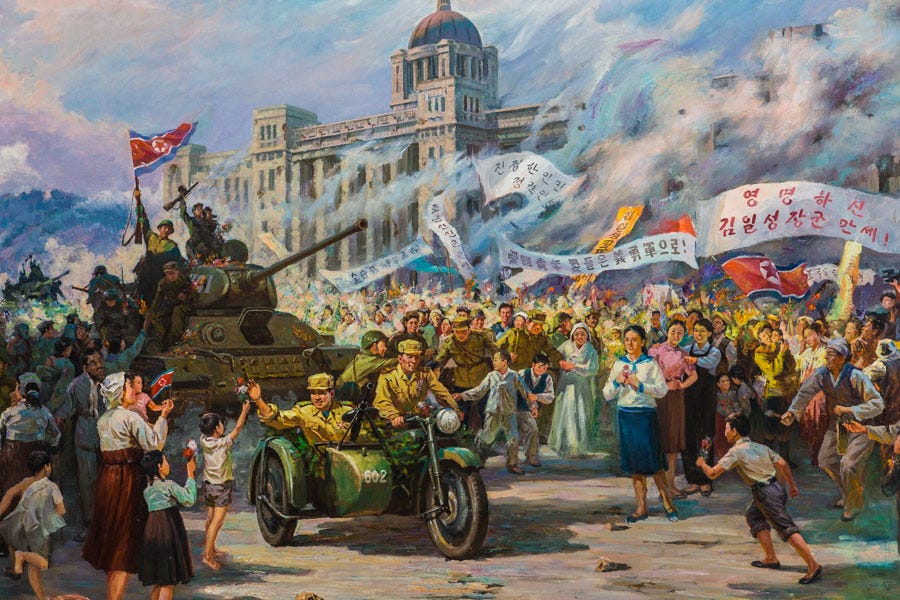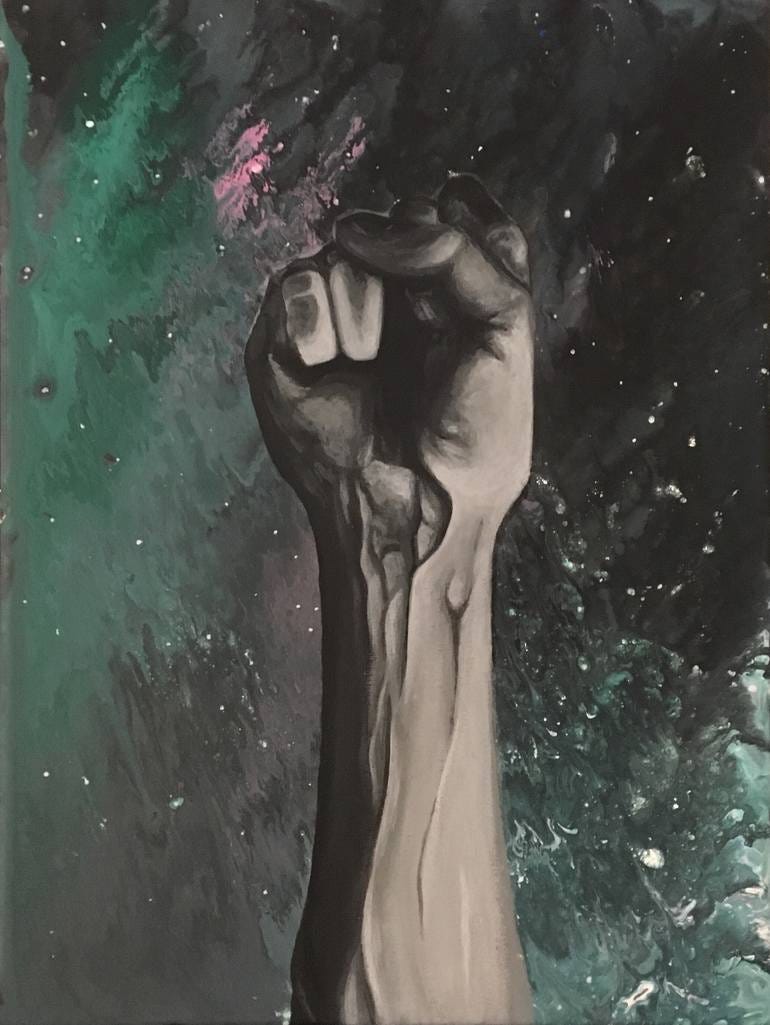Power Over Systems: Why No System Will Save Us
A discussion of competing systems, geopolitics, North Korea, and the power problem all across the world.
The Endless Debate Over Systems
I have seen endless comparisons, debates, and breakdowns of competing systems. Think capitalism, socialism, communism, anarchism. I’m tired boss.
The discourse on social media is unrelenting. Unfettered capitalism, strictly regulated capitalism, market socialism, vanguard socialism. I could go on and on about different presentations and ideologies. But no matter how you frame it, this often misses the forest for the trees. There seems to be this constant obsession with finding the “right” system for humanity. I understand this is not necessarily always a bad thing. It’s a good foundation to understand our political & economic systems and it’s good to explore our options.
That being said, we are at a point where the debate has completely stalled with no one giving much ground to the other. It’s been this way for a pretty long while now. This has exhausted our discourse and completely squashed imaginative solutions that we haven’t yet considered!
The systems we have in place are not just economic structures. They are reflections of human values, actions, and desires. Systems do not exist in a vacuum. They are built and upheld by people, shaped by historical context, and bent by power.
Beyond Utopia and the Framing of North Korea
I just finished watching Beyond Utopia, a documentary about defectors escaping North Korea. It was super thrilling and hooked my attention. It is wild to see the experiences people have to go through just to leave a country. Let’s keep it simple. The human rights abuses in North Korea are undeniable.
However, I always approach documentaries like this with a critical eye. I don’t think it was ill-intentioned. I would say it was more tasteful than other media I’ve seen about North Korea. Its focus remained largely on the defectors themselves, but there was an unmistakable undertone throughout the whole documentary. Oppression, communism = bad, and the general “North Korea is terrible” narrative.
And that is where the imperialist propaganda creeps in. Not necessarily in what is shown, but in what is left unsaid. Do you guys also pick up on a pattern? The failures of socialist or communist states are endlessly scrutinized, dissected, and held up as cautionary tales, while their successes are dismissed, ignored, or attributed to something else. The double standard alarm bells always go off in my head when I see portrayals like this.
The Double Standard of Demonization
It’s not just North Korea. Think of Venezuela, Russia, Cuba, Iran. Any country that attempts to operate outside the dominant capitalist framework is inevitably branded as a threat. The response is always the same. Suffocation. Sanctions, economic warfare, media smear campaigns, and outright military intervention if necessary.
If you're unfamiliar with the term, a coup refers to a strategic effort to overthrow those in power and replace them with leaders or systems that align with specific interests. When the CIA orchestrates a coup, it often targets socialist or communist governments, aiming to shift them toward capitalist priorities. Check out this timeline of Coups all across Latin America. And this is in just one part of the world!
These nations are demonized as "rogue states” and used as cautionary tales to reinforce the status quo. "See? This is why our system is better."
Meanwhile, the capitalist nations pointing the finger refuse to acknowledge that their own house is on fire. The systemic poverty, rampant homelessness, unchecked corporate greed, and grotesque wealth inequality baked into their systems go unquestioned. Their atrocities, such as endless wars, coups, and exploitation, are reframed as necessary evils, justified in the name of freedom and democracy. The hypocrisy is blatant. Although we have seen genuine pushback (esp in the last decade) against this double standard, it’s not nearly to the same degree as the socialist or communist countries I mentioned earlier.
Many capitalist critiques are downplayed and you hear the line “well, if you don’t like it in (insert capitalist country here) go to (insert socialist or communist country here).” It’s a complete logical fallacy I see time and time again, completely ignoring the main point. This mentality exists purely because powerful people disseminate propaganda to persuade others into believing that modern-day capitalism is not only the only option, but a superior option to all the others. This perspective is foolish, and doesn’t hold up to much scrutiny.
So that was the undertone I picked up from Beyond Utopia. It was not overt or heavy-handed like some other propaganda, but it still sidestepped the broader geopolitical factors that shaped North Korea into what it is today. Let’s talk about that some more.
Understanding North Korea’s Position in the Global Order
Korea was brutalized under Japanese colonial rule, which the documentary does mention. When it finally broke free, the Cold War dictated its fate. I learned recently that North Korea’s entire ethos is built on self-sovereignty. They prioritize avoiding foreign influence and refusing to be a pawn in global power struggles. It doesn’t want to be isolated or sanctioned, but it also doesn’t want to be politically, economically, and militarily controlled through predatory trade deals, resource extraction, and foreign intervention.
(I thought this image was pretty spot on about how the labor we don’t see is the backbone of all of the advancements we have seen. They are holding up the world but often disregarded, abused, and mistreated in the process. What does that say about our system?)
There are many countries labeled as “developing” or “third world” that hold this designation purely because they sit on the bottom rung of the capitalist hierarchy. They do not produce cutting-edge military or technological advancements. They provide raw materials, food, water, and labor. It’s super important work, but not as monetarily valued as the high level goods we see today. They are systematically exploited through multinational corporate greed and one-sided trade deals. They have no real choice. Either integrate on the terms of imperialist powers or be choked out like the cautionary tales we mentioned earlier. This is the situation we see all across the global south.
The Successes and Failures of Socialist States
To be clear, this is not an apology for North Korea’s very real issues. Or to pretend that socialism and communism can’t have their issues. But in that same vein, we also cannot ignore the successes of socialist states.
(If we are bombarded with capitalist messaging, why not share some communist propaganda? This is artwork depicting people revering Kim’s utopia in North Korea. Of course it isn’t telling the truth in its own right, but what you see as propaganda here can help you identify propaganda on the other end of the spectrum.)
Cuba has universal healthcare and some of the best medical advancements despite a crushing blockade. North Korea, while under immense global pressure, still developed nuclear weapons. This is an unprecedented move for a country of its economic standing, though it did come at an enormous cost for its people. Burkina Faso, under Thomas Sankara, dramatically increased literacy and self-sufficiency before foreign-backed forces led a coup to shut it down. He was promptly assassinated. Go figure right? I have to include a picture of Sankara because he was an inspirational badass and deserves to be remembered.
The point is, all these states have wins. They also have failures. And North Korea has both.
Prioritizing military security over civilian welfare comes at a cost. Their government is authoritarian. There is poverty. There is abuse. The elite in Pyongyang live in luxury compared to agrarian workers. These are facts and realities for their citizens.
Saudi Arabia: A Convenient Exception
Now let us flip the script to a prominent player in global capitalism and a strong ally of the United States. Saudi Arabia. What about their human rights record? You do not see nearly the same level of relentless scrutiny. Why? Because Saudi Arabia plays ball with global capitalist powers. More aptly, they are one of the top capitalist superpowers. Their crimes, such as journalists murdered, women subjugated, and war crimes in Yemen, are swept under the rug because they serve an economic function in the global order.
I just watched The Dissident, a documentary about the murder of prominent Saudi journalist Jamal Khashoggi. That felt like the first time in a long while that Saudi Arabia’s human rights abuses were under the spotlight. Until then, I had not heard much talk about their egregious violations of human rights in any major media outlets.
So it takes an unprecedented situation and media frenzy for Saudi Arabia to be criticized, and even then, Trump refused to acknowledge or condemn the Saudi Royal Family. This is how tight the bond of money is. It knows no bounds or limits. That is the hypocrisy. That is the double standard North Korea and other so-called "rogue states" have every right to be furious about.
The Real Problem: The Consolidation of Power
Maybe North Korea struggles because it is a communist state in a world that is fundamentally hostile to communism.
Or maybe, like every other country, it struggles because of deeper issues such as the consolidation of power and corruption.
It does not matter what system you have. Capitalism, socialism, or something entirely new. If power concentrates in the hands of a few, abuse will follow. Especially if the system incentivizes power falling into the hands of sociopaths, narcissists, and generally self-interested people. You don’t see the best of humanity actively trying to seek power over others. That’s not to say good people can’t be in positions of power or seek it out, but the general trend holds up. Think of everyone you see in positions of power today. Why does it always come out that they are generally not great people? This is not a coincidence.
The wealthy, the ruling class, the elite, call them what you want, will always seek to manipulate systems and people to serve their interests.
Fixing the Flaws in Any System
It is not about capitalism versus socialism. It is about identifying and fixing the flaws within any system. One of the biggest flaws in modern capitalism is the overwhelming influence of money in politics. Governments that are supposed to represent the people instead answer to corporations, billionaires, and lobbyists.
But it does not have to be that way.
There are so many ideas on how to decentralize power and shift the balance. Worker cooperatives, cryptocurrency, anti-corruption laws, and stronger labor protections all present opportunities to distribute power more equitably. The ideas already exist. The issue is that the current balance of power prevents them from being implemented.
This is why leftists emphasize class consciousness, but I would like to reframe it as power consciousness. People have immense power, especially when organized collectively. However, the ruling elite also have immense power in the form of resources and influence. If people want change, it is about shifting that balance and undermining or even making the power of elites obsolete.
If power is granted to someone, whether a politician, CEO, or religious leader, there needs to be real accountability. If they fail to uphold their responsibilities, they should be swiftly removed. Not through convoluted bureaucratic processes designed to shield the powerful, but through meaningful direct action.
If we can shift the power structure into the hands of good people, and decentralize that power to ensure accountability, we will see a much healthier society. In that sense, I guess I contradict my title. A system rooted in these principles will help us, but ultimately we are saving ourselves by addressing the root issues and not limiting ourselves with rigid thinking.
A Shift in Global Power is Inevitable
Right now, we are watching desperate kicks, grasps, and punches from those who are afraid of losing their power under global capitalism. People are craving change, and there has not been this level of collective awareness in a long time.
Each of us has immense personal power over our lives and our impact on the world. So I’ll leave you with a question.
What Will You Do With Your Power?
As always, thanks for reading! If you found this insightful, consider subscribing for more writeups and keep tabs on my social media for my other endeavors. Wishing you well :)
- Sain












